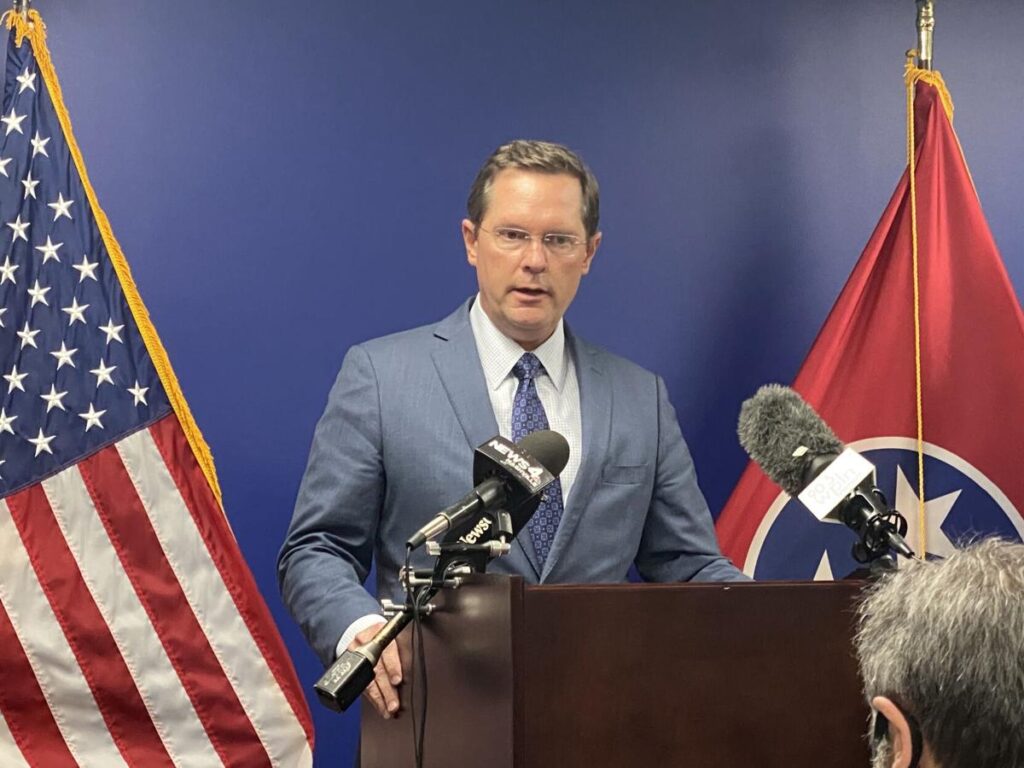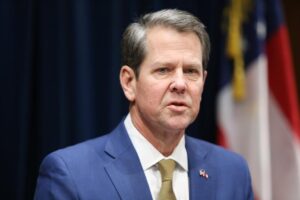Criticism continues for state’s $2.5M ‘Tennessee on Me’ tourism campaign

When the promotions featuring Tennessee Gov. Bill Lee and country music star Brad Paisley began for the new “Tennessee on Me” tourism initiative, it took many of Lee’s Republican colleagues by surprise.
Lt. Gov. Randy McNally and House Speaker Cameron Sexton knew a $2.5 million tourism initiative was in the new state budget, but they didn’t know what it entailed until the promotions debuted on the Fourth of July.
The tourism initiative requires a visitor to book at least a two-night stay, including a Sunday through Wednesday night, at a designated hotel in Nashville, Memphis, Knoxville or Chattanooga. Forty-eight hours after the stay is paid for, participants will receive a $250 airline voucher to fly into an airport in one of those four cities.
“It is especially troubling that the promotion is limited to our major cities,” McNally, R-Oak Ridge, said in a statement. “At least two of those cities exacerbated the economic crisis by instituting overly aggressive lockdown policies.
“It makes little sense to limit the promotion to those cities when our rural areas were hit as hard, if not harder, by the economic crisis than those cities,” McNally said. “I will be asking the administration and the Department of Tourist Development to provide more detail to the legislature about such initiatives during the budget process in the future.”
Tennessee’s tourism industry lost more than $300 million in revenue between March 2020 and December 2020, according to the Tennessee Department of Revenue.
“The tourism campaign will support our state’s economic recovery and workforce growth by encouraging tourists to not just visit Tennessee, but stay for several days and explore many local businesses and attractions beyond our larger cities,” Lee press secretary Casey Black said.
Sexton, R-Crossville, said lawmakers who went through the budget knew the funds would be used on a different approach rather than the traditional billboards, TV spots and publication advertisements the Tennessee Department of Tourist Development typically uses.
Sexton also said the airlines vouchers going mainly to out-of-state visitors isn’t different than the previous approach of paying for advertising to attract out-of-state visitors.
Sexton said the out-of-the-box thinking that led to state incentives for the TV series “Nashville” was the most successful decision the state had made toward tourism. A Beacon Center of Tennessee report showed Tennessee gave the show more than $45 million in incentives for its six seasons.
“It was meant to be remembered,” Sexton said of “Tennessee on Me.” “Maybe it will pay for itself.”
Sexton said the ad has gained a lot of attention partially because it is so different than tourism initiatives in the past. McNally, meanwhile, said he would have preferred a more traditional approach.
“The mission of the Tennessee Department of Tourist Development is to motivate travel to and within Tennessee,” McNally said. “While the tourism industry in our major cities was hard hit during the COVID crisis, it has bounced back in record time. Under the circumstances, I would have preferred a more traditional approach to tourism development rather than direct transfers of Tennessee taxpayer money to mostly out-of-state recipients.”
The $250 airline vouchers can be used on Delta Airlines, American Airlines or Southwest Airlines. The hotel reservations must take place between July 11 and Dec. 31 and be booked by Sept. 15. There is a limit of 10,000 vouchers available.
“While Governor Lee has done a good job of balancing lives and livelihoods during the pandemic, this is absolutely a step in the wrong direction,” said Mark Cunningham, vice president of strategy and communications at the Beacon Center. “This is another example of the government picking winners and losers since only four Tennessee cities are included as part of the promotion, and it will likely just end up being another taxpayer-funded gift to Nashville.
“We love to see visitors come to our state and spend money, and while this program is well-intentioned, it is not the role of the government to give out our hard-earned tax dollars to tourists who want to check out Broadway, the Chattanooga Choo Choo or Beale Street,” Cunningham said.
Some opponents of the initiative have cited the campaign debuted on the same weekend the state stopped participating in the federal pandemic relief unemployment program, which gave those on unemployment an additional $300 weekly stipend.
“Tennesseans who lost their job through no fault of their own deserve leaders who will stand up for them when times are tough,” said Sen. Brenda Gilmore, D-Nashville. “The governor’s decision to reject federal aid for these families while handing millions to airline CEOs and tourists betrays these workers. Why are our own families so unworthy of support?”
Gilmore cited statistics showing 253,000 Tennesseans have been laid off, according to data from the Tennessee Department of Labor, and the Congressional committee report showing Tennessee will miss out on $486 million for its local economy after Lee ended the state’s participation in the federal unemployment program.
“If we want to make progress for every family, let’s prioritize the job of serving Tennesseans first. Let’s increase access to childcare so every parent can resume their career and let’s ensure healthcare is affordable so workers don’t get caught in cycles of debt,” Gilmore said in a statement. “It’s easy to pal around with music stars, but now is time for the hard work of serving our families.”
This article was originally posted on Criticism continues for state’s $2.5M ‘Tennessee on Me’ tourism campaign







